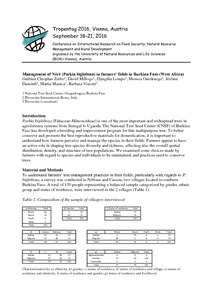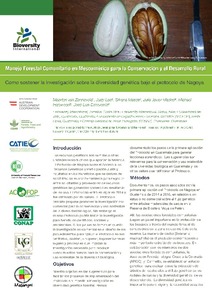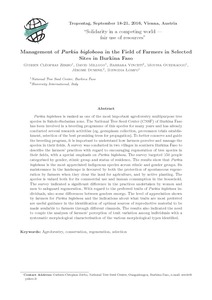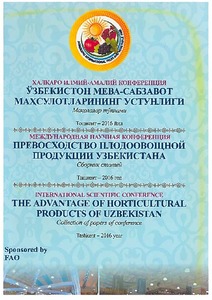Location
Bioversity International is a global research-for-development organization. We have a vision – that agricultural biodiversity nourishes people and sustains the planet.
We deliver scientific evidence, management practices and policy options to use and safeguard agricultural and tree biodiversity to attain sustainable global food and nutrition security.
We work with partners in low-income countries in different regions where agricultural and tree biodiversity can contribute to improved nutrition, resilience, productivity and climate change adaptation.
Members:
Resources
Displaying 41 - 45 of 184Management of Nere (Parkia biglobosa) in farmers’ fields in Burkina Faso (West Africa)
Parkia biglobosa (Fabaceae-Mimosoideae) is one of the most important and widespread trees in
agroforestry systems from Senegal to Uganda. The National Tree Seed Center (CNSF) of Burkina
Faso has developed a breeding and improvement program for this multipurpose tree. To better
conserve and promote the best reproductive materials for domestication, it is important to
understand how farmers perceive and manage the species in their fields. Farmers appear to have
Management of Parkia biglobosa in the field of farmers in selected sites in Burkina Faso
Parkia biglobosa is ranked as one of the most important agroforestry multipurpose tree species in Sahelo-Sudanian zone. The National Tree Seed Center (CNSF) of Burkina Faso has been involved in a breeding programme of this species for many years and has already conducted several research activities (eg. germplasm collection, provenance trials establishment, selection of the best promising trees for propagation). To better conserve and guide the breeding program, it is important to understand how farmers perceive and manage the species in their fields.
Local diversity of fruit, nut trees and grapevine as basis of organic horticulture development in Uzbekistan
This paper (in Russian) discusses the possibility of development of organic fruit growing in Uzbekistan using rich varietal diversity of local fruit crops.





